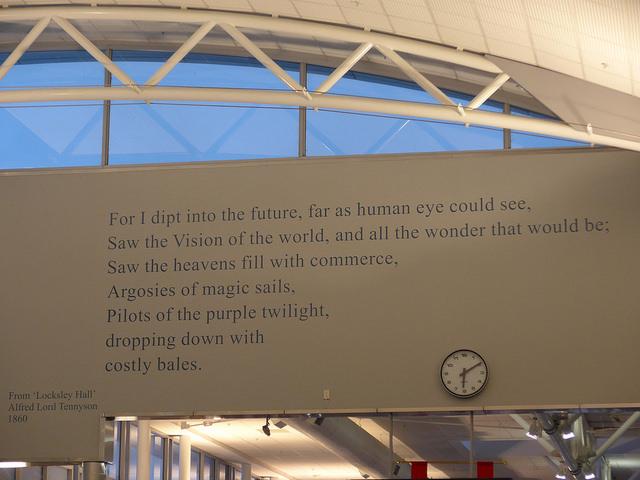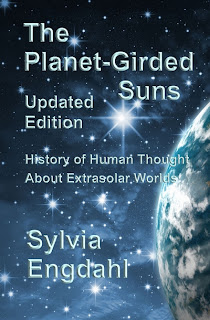Category Archives: Poetry
“Endymion…A Thing of Beauty” by John Keats
Reading and video by Tom O’Bedlam. The full text of Keats’ Endymion may be read herehere:
http://en.wikipedia.org/wiki/Endymion_(mythology)
The paintings are:
“Sleeping Endymion”, by Nicolas Guy Brenet, 1756
“Sleeping Endymion” by Pietro Liberi, c1660
“Selene and Endymion” by Nicolas Poussin, 1630
A thing of beauty is a joy for ever:
Its loveliness increases; it will never
Pass into nothingness; but still will keep
A bower quiet for us, and a sleep
Full of sweet dreams, and health, and quiet breathing.
Therefore, on every morrow, are we wreathing
A flowery band to bind us to the earth,
Spite of despondence, of the inhuman dearth
Of noble natures, of the gloomy days,
Of all the unhealthy and o’er-darkened ways
Made for our searching: yes, in spite of all,
Some shape of beauty moves away the pall
From our dark spirits. Such the sun, the moon,
Trees old, and young, sprouting a shady boon
For simple sheep; and such are daffodils
With the green world they live in; and clear rills
That for themselves a cooling covert make
‘Gainst the hot season; the mid-forest brake,
Rich with a sprinkling of fair musk-rose blooms:
And such too is the grandeur of the dooms
We have imagined for the mighty dead;
All lovely tales that we have heard or read:
An endless fountain of immortal drink,
Pouring unto us from the heaven’s brink.
Nor do we merely feel these essences
For one short hour; no, even as the trees
That whisper round a temple become soon
Dear as the temple’s self, so does the moon,
The passion poesy, glories infinite,
Haunt us till they become a cheering light
Unto our souls, and bound to us so fast
That, whether there be shine or gloom o’ercast,
They always must be with us, or we die.
“The Hab at Night” by S. H. Proctor
Ray Bradbury Reading Poetry at Caltech
Walt Whitman "O Pioneers!"
Jasmine Johns: ‘Space’ – A tribute to ‘Arabia’ by Walter de la Mare Space
Vast are the reaches of space,
Where the dreamers propel towards infinity,
‘Mid the scintillating galaxies of stars,
Beyond the shadow of their world;
And so beloved is that verdure hearth
Suns in the cosmos rise
And cast their rays upon humanity
Bold pioneers forever gazing into eternity.
Space a Lulling symphony
In my heart, and in my seams
a constant reverb oscillating through my veins
Guiding my perceptions and facilitating my dreams;
This grand outré conception void of boundary
Resonating fiercely transcending my mind above the confines of this world
On the final cord clinging to the last note
My eyes descend reiterating this vestige of melody
It haunts me — the phantasm of space;
No beauty on earth I see
But ignited by the cadence recollects
Its loveliness to me:
Still eyes look coldly upon me,
Harsh voices whisper and say —
‘She’s crazed with the spell of Space,
And her soul has been stolen away.’
"Stillness", Mansur Hallaj, translated by Mahmood Jamal
Stillness, then silence, then random speech,
then knowledge, intoxication, annihilation;
Earth, then fire, then light,
coldness, then shade, then sunlight.
Thorny road, then a path, then the wilderness.
River, then ocean, then the shore;
contentment, desire, then Love.
Closeness, union, intimacy;
closing, then opening, then obliteration,
separation, togetherness, then longing;
signs for those of real understanding
who find this world of little value.
"Unless someone like you cares a whole awful lot, Nothing is going to get better. It’s not."
Sylvia Engdahl "Planet-Girded Suns: History of Human Thought about Extrasolar Worlds"
“In a brisk, engrossing account Engdahl traces the theories and speculations concerning the possibility of extraterrestrial intelligent life throughout history.” —ALA Booklist
“Engdahl has marshalled an impressive and fascinating selection of primary sources. . . . [She] has shown how deep this vein of speculation runs . . . and reminded us that our ancestors entertained a view of the universe that was larger and more imaginative than the history books lead us to believe. Challenging and original.” —Kirkus Reviews
 |
| Facebook.com/Sylvia.Engdahl |
“It’s commonly assumed that belief in other inhabited worlds, especially worlds in other solar systems, is a relatively modern idea, which didn’t become prevalent until the 20th century — many today even think it was originated by science fiction. But in fact, from the mid-17th century through 19th almost all educated people believed that the stars are suns surrounded by inhabited planets. This belief wasn’t seriously questioned until the late 19th century, and was out of favor with the majority only for a short period roughly corresponding to the time between World Wars I and II.”
“In the early 1970s, while doing research for my nonfiction book The Planet-Girded Suns, I collected quite a bit of poetry from earlier centuries that reveals what was thought about other planets. Much such poetry is by writers — many of them didactic writers — who are forgotten today, so a few stanzas by famous poets are often cited as if they were rare exceptions displaying prophetic vision.
Actually, these familiar ones are typical of the vast amount of such verse that appeared in popular publications of their day. In many cases I’ve seen only fragments of poems, quoted by scholars of literature; in others I’ve taken brief passages from long (sometimes book-length) works that are particularly relevant. This collection has been stashed away in my files for 30 years — I’m posting portions of it now in case others may find them as fascinating as I do.”
“Why do these views of the past about the universe matter today? Because, I think, they demonstrate that people have been aware of planets beyond Earth, and have been deeply attracted to them, for a very long time — long before travel between worlds was considered even a remote possibility. The desire for knowledge about them appears to be an instinctive human longing.”
“In the 18th century, of course, it was assumed that there could never be actual contact with other worlds; but the people who believed in their existence couldn’t bear to think that nobody would ever find out more than could be learned through telescopes, and so they envisioned the souls of men like Newton — and eventually, their own souls — voyaging through space and seeing those worlds at close range on their way to Heaven. A great many poems were written on this theme; it was the first form in which space travel was seriously imagined by the public (stories of trips to the moon in that era, though popular, were either fantasy or satire on earthly affairs). People felt deep emotions about the idea. The late 19th and early 20th centuries, when literal belief in an afterlife declined, coincided with the time when belief in many inhabited solar systems began to fade. I’ve always felt that this was a kind of “sour grapes” response — or rather, a perhaps- comforting conclusion that there aren’t any grapes on vines beyond our reach. It’s significant that the conviction that millions of extrasolar planets exist didn’t become widespread again until radio astronomers began to have hope of receiving messages from them, and that as time passes without evidence of extraterrestrial intelligence, the pendulum seems to be swinging again toward theories that Earth may be unique.”
“In any case, a strong sense of our kinship with a vast inhabited universe has prevailed during most of the decades for the past 350 years, and these poems are evidence of its existence before the 20th century. Dozens of poets — and no doubt more whose works aren’t accessible, as well as those who wrote in languages other than English — referred briefly to planets circling other suns, usually in a religious context as evidence of God’s power.”
Advanced Propulsion from a 14th Century Iranian
Ghazal 164:
I see no love in anyone. Where have all the lovers gone?
When did friendship come to an end? What made our friends pass on?
Life’s water has blackened. Where is green-hand Khezr to deliver the land?
The red has been bled from the rosebush. Where are the winds of spring and dawn?
Now no one says: “our friends have a right to our support.” What happened
To those who know what’s right? Where have the righteous lovers gone?
For years not a single ruby has come from chivalry’s buried lode.
Where are the strains of breeze and rain? Where is the beat of the sun?
This was a city of lovers, once, this realm a land of kindness.
When did kindness end? What toppled sweetness from the throne?
The ball of gracious statesmanship rolls on an empty polo-field.
No player dares strike it. What has brought our mounted champions down?
A million roses bloomed, not one bird rose singing for them.
What stopped a thousand nightengales? What happened to their sound?
The spheres cannot sing. Has Venus herself incinerated her lute?
No one can think of drinking. Where have the rowdy winelovers gone?
Silence, Hafez! Nobody knows the secret turns of Heaven.
Who is it you are asking “How has the wheel of fortune spun?”?
Ghazal 164 – “Where Have All The Lovers Gone?” Translated by A.Z. Foreman
Commentary by Foreman: “I like to think that this poem was written after the fall of the Inju dynasty, when the poet’s hometown of Shiraz came under the Muzaffarids and the wine-taverns were closed. The first Muzaffarid ruler Amīr Mubāriz-al-Dīn executed Hafiz’ previous patron and ruled in a puritanical, pietistic and cruel manner that might best be described as “teetotalitarian.” In contrast to the freedom of the reign of the Injuids, the stifling religiosity of Mubāriz-al-dīn’s reign lead to the closing of wineshops, the curtailment of public singing and the enforcement of religious orthopraxy. It is a weirdly happy irony in the 21st century that Iran’s most famous poet seems to have hated the tyranny of a theocrat who attempted to legislate the people’s spiritual lives. “
The Original:
یاری اندر کس نمیبینیم یاران را چه شد
دوستی کی آخر آمد دوستداران را چه شد
آب حیوان تیره گون شد خضر فرخ پی کجاست
خون چکید از شاخ گل باد بهاران را چه شد
کس نمیگوید که یاری داشت حق دوستی
حق شناسان را چه حال افتاد یاران را چه شد
لعلی از کان مروت برنیامد سالهاست
تابش خورشید و سعی باد و باران را چه شد
شهر یاران بود و خاک مهربانان این دیار
مهربانی کی سر آمد شهریاران را چه شد
گوی توفیق و کرامت در میان افکندهاند
کس به میدان در نمیآید سواران را چه شد
صد هزاران گل شکفت و بانگ مرغی برنخاست
عندلیبان را چه پیش آمد هزاران را چه شد
زهره سازی خوش نمیسازد مگر عودش بسوخت
کس ندارد ذوق مستی میگساران را چه شد
حافظ اسرار الهی کس نمیداند خموش
از که میپرسی که دور روزگاران را چه شد
Foreman’s remarkable blog:
http://
There’s been some flat out god awful poetry floating around – inflicted upon us – by sheer egoists with zero taste coupled with such narcissism it prohibits reflective self-improvement…if…you find yourself compelled to write poetry about space exploration, and, share it with others, at space events, in videos, for whatever reason – PLEASE – acquaint yourself with Hafez. First. Please.















